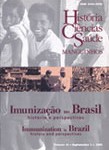Aug 2015

Mamadouba Conté processes samples in the Ebola lab. Testing of participants in the trial is a central part of the process. The Guardian
A vaccine against Ebola has been shown to be 100% successful in trials conducted during the outbreak in Guinea and is likely to bring the west African epidemic to an end, experts say.
The results of the trials involving 4,000 people are remarkable because of the unprecedented speed with which the development of the vaccine and the testing were carried out.
Scientists, doctors, donors and drug companies collaborated to race the vaccine through a process that usually takes more than a decade in just 12 months.
“Having seen the devastating effects of Ebola on communities and even whole countries with my own eyes, I am very encouraged by today’s news,” said Børge Brende, the foreign minister of Norway, which helped fund the trial.
“This new vaccine, if the results hold up, may be the silver bullet against Ebola, helping to bring the current outbreak to zero and to control future outbreaks of this kind. I would like to thank all partners who have contributed to achieve this sensational result, due to an extraordinary and rapid collaborative effort,” he said on Friday.
There have been a total of 27,748 cases of Ebola in Guinea, Liberia and Sierra Leone up to 26 July, with 11,279 reported deaths, although the outcome of many cases is unknown and the toll will be significantly higher. In the week ending 26 July, there were just four new cases in Guinea and three in Sierra Leone.
Because of the diminishing number of Ebola cases in West Africa and the shifting nature of the epidemic, with many sudden small outbreaks occurring across the region, researchers hit on a novel design for the trial.
The “gold standard” approach would be to take a population at risk of Ebola and vaccinate half of them while giving the other half a placebo. Instead, the researchers used a “ring” design, similar to that which helped prove the smallpox vaccine worked in the 1970s.
When Ebola flared up in a village, researchers vaccinated all the contacts of the sick person who were willing – the family, friends and neighbours – and their immediate contacts. Children, adolescents and pregnant women were excluded because of an absence of safety data for them. In practice about 50% of people in these clusters were vaccinated.
Read the full story in The Guardian Website.
Read more about Ebola in our blog:









